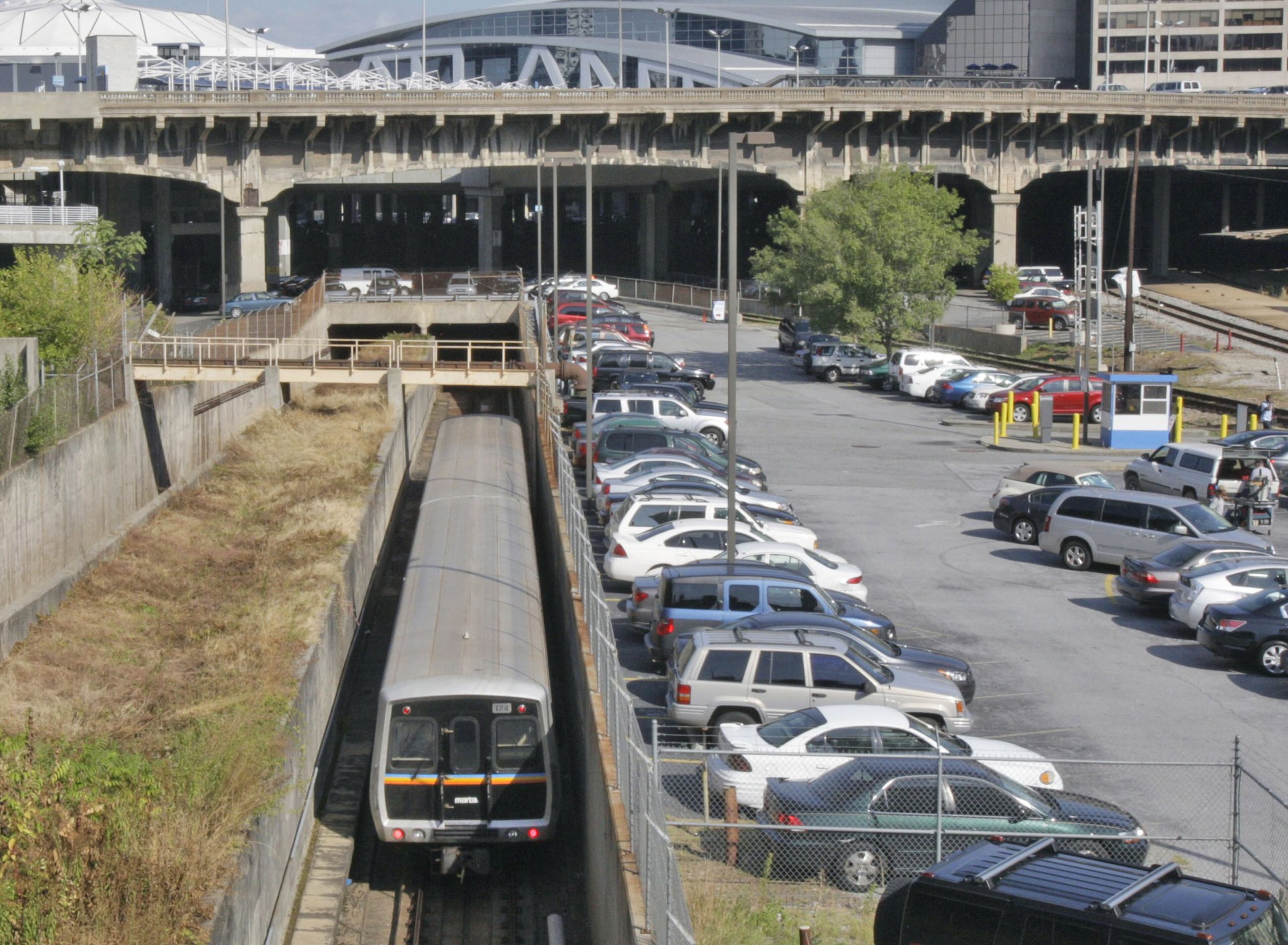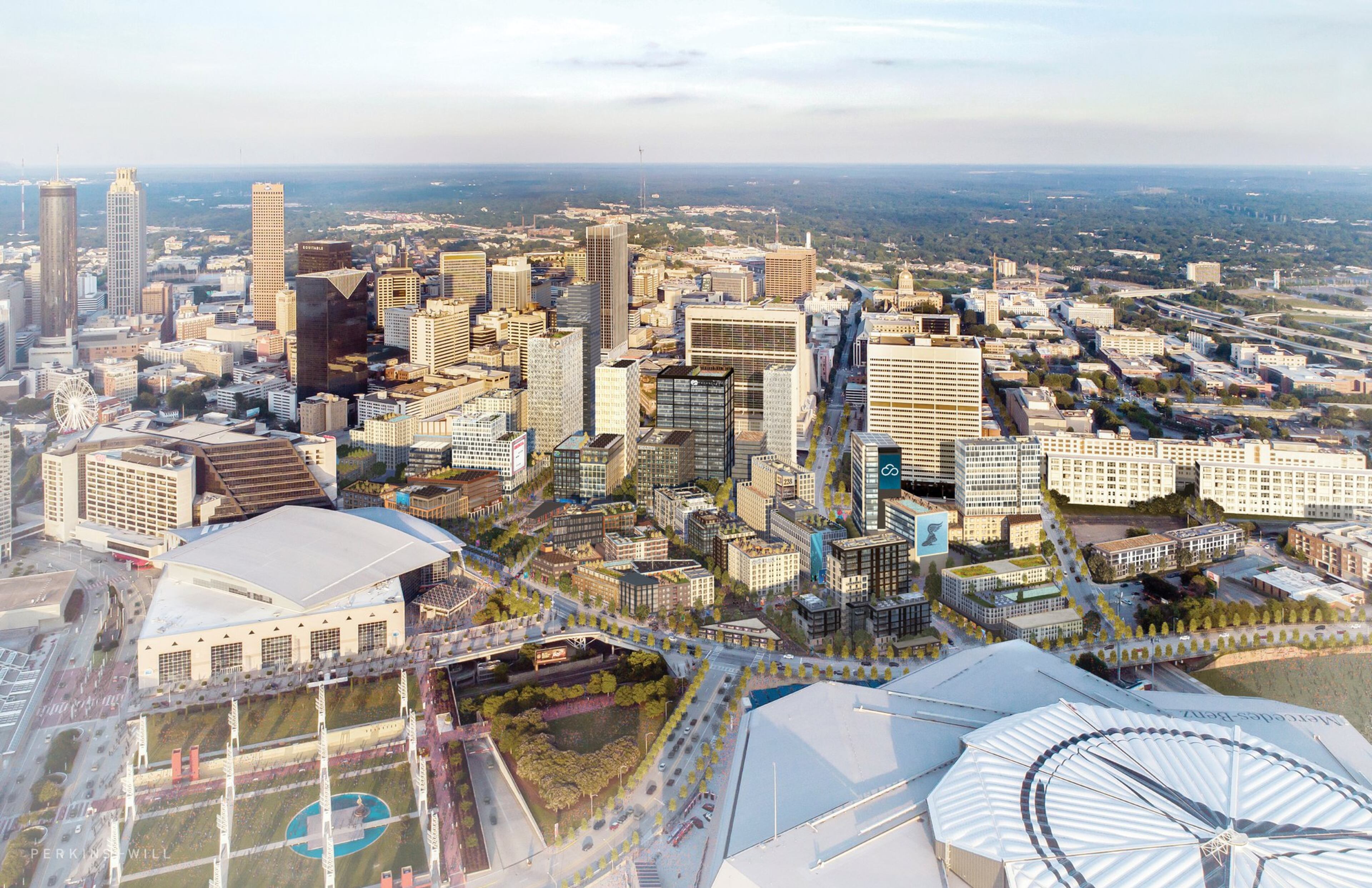Hawks owner: Gulch project could be ‘engine” for downtown Atlanta
Atlanta Hawks lead owner Tony Ressler said plans to redevelop downtown’s Gulch will transform the city, but the complex project requires not only billions of dollars in private funding, but also a substantial public investment to make it a reality.
Ressler, in his most expansive comments to date about the Gulch, told The Atlanta Journal-Constitution that the Hawks and their development partners, CIM Group, are committed to bringing billions in new investment downtown.
But to make the project feasible, he said the developers need a substantial portion of three decades of expected sales taxes and property taxes created by the development to build the infrastructure necessary to serve the site and connect neighborhoods across downtown. But it will take convincing a council that so-far appears wary of the commitment.
>> AJC FLASHBACK PHOTOS: Atlanta’s Gulch and viaducts
CIM Group wants to build a mini-city that could grow to more than 9 million square feet of office space, 1,000 residences, 1,500 hotel rooms and 1 million square feet of retail space.
To build it, CIM wants to build a platform 40 feet above ground level to span the rail lines and build 12 to 15 new city blocks.
The public financing could climb to $1.75 billion if the project meets its full potential of an estimated $5 billion in new construction.
“Do we want what we have? Or do we want to go forward to develop what I do think is 100 percent certain to be a positive to metro Atlanta and to downtown Atlanta more particularly?” Ressler said.
Downtown, Ressler said, could be much more vibrant, but the Gulch has been “an anchor” dragging on downtown revitalization.
Under the proposed structure, CIM and partners would fund construction of the platform, and as parcels are developed would recoup their investment from sales and property tax growth.
The proposal to redevelop the Gulch has received pushback from members of the City Council and some neighborhood groups concerned about the potential 10-figure commitment of public funds.

Council members have concerns about the long-term commitment of property taxes and potential impact on future budgets before the city sees the full financial windfall from future development.
Other critics have said CIM’s commitment for 20 percent of future residential units to be reserved as affordable isn’t enough to help the city tackle its affordability challenge.
Ressler said jobs created by the tenants in the development — from corporations taking up office space to retailers and restaurants on the street fronts — would create tens of thousands of jobs to uplift residents.
“Are the majority of Atlantans going to see an improvement in downtown Atlanta and does this become an engine of growth?” he said. “That is our bet. We believe that at our core.”
As proposed, the public funds would come from two sources, a portion of sales taxes generated on-site under a state designation known as an Enterprise Zone, and through bonds backed by the Westside Tax Allocation District (TAD).

A TAD is a zone where governments freeze property tax collections and use future expected increases in property values over many years to fund infrastructure and other improvements in that zone.
Mayor Keisha Lance Bottoms told councilmembers last month that "the elephant in the room" is Amazon, which has Atlanta on its list of 20 communities for its second headquarters project and 50,000 jobs.
In an interview, Ressler said he did not know what Amazon’s plans are, but the development partners will proceed whether Amazon picks Atlanta or not.
"This is a development that does not require — by any stretch — Amazon," said Ressler, whose partners started planning for development in the Gulch when they purchased the team in 2015, nearly two years before Amazon announced its HQ2 project.
“We actually planned, developed and thought through this entire development not even aware of the Amazon headquarters search,” Ressler said. “That was never part of this discussion whatsoever.”
The governor’s office has been closely involved in the negotiations to redevelop the Gulch.

Georgia economic development officials have been trying to lure in other big fish to the development site beyond Amazon, and are quick to note that the state owns a giant chunk of the downtown Atlanta property and will carry a large financial risk with whatever project goes forward.
Gov. Nathan Deal’s top aide, Chris Riley, visited Atlanta City Hall on Friday to encourage councilmembers to back the project — and pledge the state’s partnership with City Hall and CIM moving forward on the development.
Staff writer Greg Bluestein contributed to this report.
What he said…
Hawks lead owner Tony Ressler said as an investor and resident of Atlanta, he has a 30-year view of what he wants to see downtown become.
“I have not met a person in a genuine open conversation who is not wildly frustrated by the Gulch.”
On what a Gulch redevelopment could mean for the Hawks:
“We want our fans to come two hours early, stay two hours late, which would not just help the experience, but would reduce traffic and make it a better experience. That’s where I started this. And not knowing Atlanta as well as I do now, we frankly were told people don’t go downtown after the event. They don’t stay after the event, they don’t go long before. You just don’t do that in Atlanta.
“I was determined, I am determined to change that.”
MORE DETAILS
Gulch Redevelopment Scope: Developer CIM Group outlined a project of $3.5 billion to $5 billion. The CIM proposal could grow to more than 9 million square feet of office space, 1,000 residences, 1,500 hotel rooms and 1 million square feet of retail space.
Public investment: Documents obtained by the AJC project public financing of $900 million to $1.75 billion, though those figures could grow. It would be funded by sales taxes generated on site and bonds backed by expected future increases in property taxes.
What's next: Several pieces of legislation pertaining to Gulch redevelopment are pending and could be considered by Atlanta City Council later this month.



